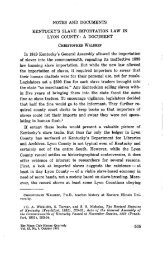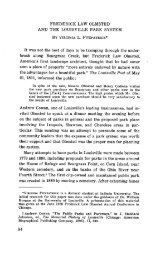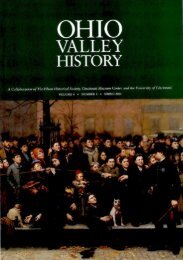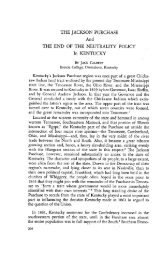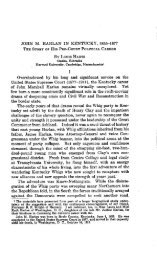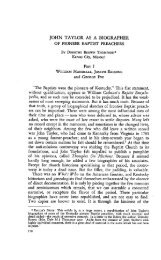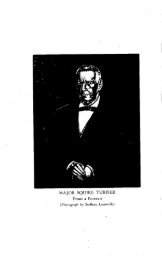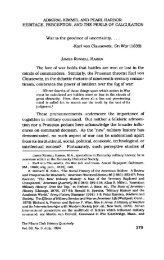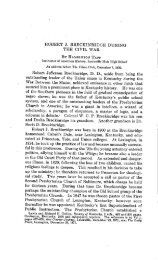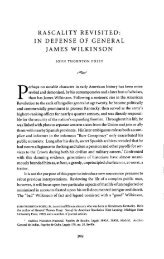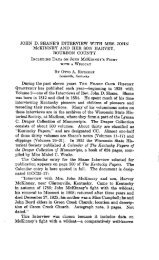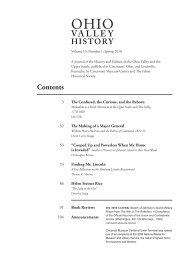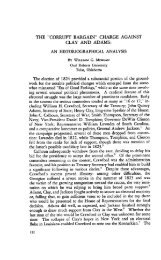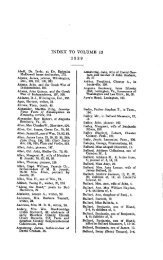mattie griffith, madge vertner, and kentucky abolitionism - The Filson ...
mattie griffith, madge vertner, and kentucky abolitionism - The Filson ...
mattie griffith, madge vertner, and kentucky abolitionism - The Filson ...
You also want an ePaper? Increase the reach of your titles
YUMPU automatically turns print PDFs into web optimized ePapers that Google loves.
THE FILSON HISTORY QUARTERLYstrike down at once, we must go cautiously <strong>and</strong> gradually to work,"Griffith depicts him as a compromiser who cannot confront the sinof slavery.• After Norton marries Helen <strong>and</strong> obtains control over herproperty, however, he quickly distances himself from the politicalfaith he has preached <strong>and</strong> uses gradualism as an excuse. Norton fullydeserves the cynical appraisal of townspeople who dismiss his <strong>abolitionism</strong>as show-talk <strong>and</strong> him as a fortune-hunter. Helen is a flailwoman who suffers from consumption, the same disease with whichGriffith killed off the sympathetic young John Peterkin, the plantationowner's young son <strong>and</strong> bearer of antislavery sentiments in Autobiography.By late in the novel, with Helen on her deathbed, Nortoncontinues to find excuses to delay emancipation, <strong>and</strong>, months afterher funeral, he drops all pretenses towards fulfillment ofhis promisesto liberate the family slaves. Instead, this once-abolitionist has beentransformed into a harsh <strong>and</strong> driving master whose slaves complainof ill treatment.Emancipation left promised <strong>and</strong> unperformed is emancipationdenied, <strong>and</strong> a male heart that does not underst<strong>and</strong> the cruelty of slaverycontinually finds economic reasons to leave emancipation in therealm of promises alone. Through the example of Norton, Griffithargues that the coercions of profit <strong>and</strong> loss are irrelevant within thecontext of divine recognition of individual souls <strong>and</strong> self-possession.Economic antislavery arguments, advanced by men with financialself-interests that generate deceit, ignore the central issue of freedom.Although luxury-loving society women like Mrs. Vertner, dependenton their husb<strong>and</strong>s for their indulgences <strong>and</strong> dependent upon blackdomestic labor for service, may endorse slavery, Griffith's "truewomen" have no need for these <strong>and</strong> can dispense with the system ofslavery. Madge is a stubborn child ofnature, convinced of the naturaljustice of her antislavery beliefs; Helen is eager to relinquish her50 1bid., 19.268



